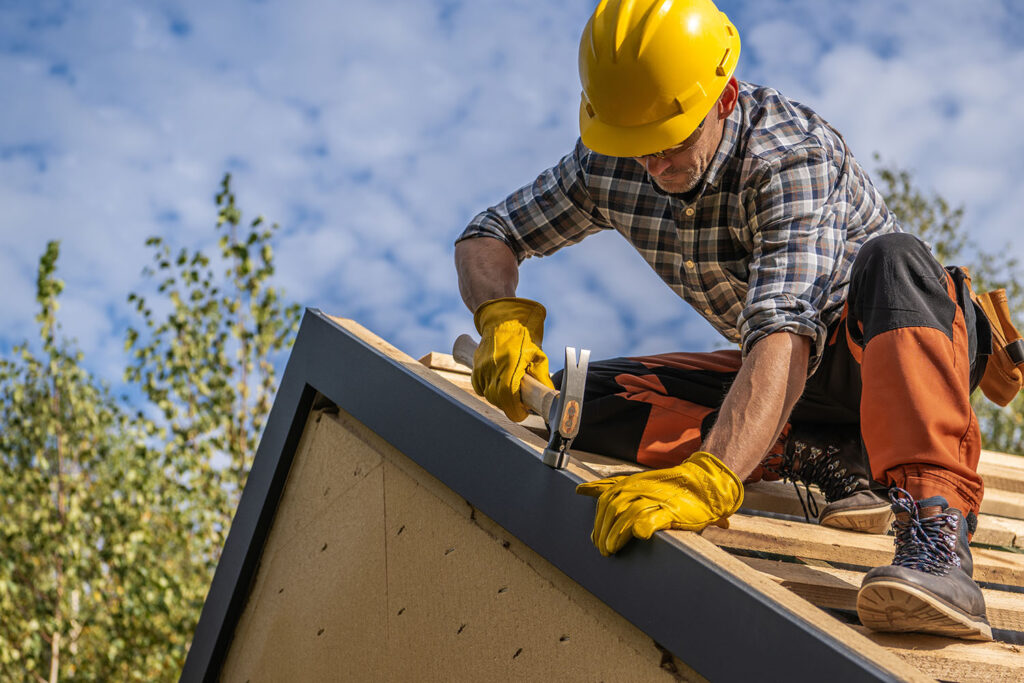So, you’ve made the decision. Your roof is due for repair—or it’s finally time to replace it. The quotes are in, you’re close to selecting a contractor, and everything seems to be falling into place.
But before the first nail is driven or the old shingles come off, there’s one more essential step: asking the right questions.
A quality roofing project doesn’t begin with demolition. It begins with clarity. The right questions help you avoid misunderstandings, delays, budget surprises, and future repairs that shouldn’t be necessary.
This isn’t about being skeptical—it’s about being informed. Here’s your comprehensive rooftop checklist: the questions you should be asking any roofing company before they start your roof repair or roof replacement project.
1. What Exactly Is Included in the Scope of Work?
A detailed estimate is great, but don’t stop there. You’ll want to understand every part of what the project includes—from tear-off to cleanup.
Ask:
- Will old roofing material be completely removed?
- Are underlayment and flashing included?
- Will ventilation or decking be inspected or replaced if necessary?
It’s especially important to understand what might incur additional charges if discovered mid-project. Clear expectations now help avoid last-minute upcharges.
2. Who Will Be On-Site, and Will There Be a Project Manager?
Not all contractors operate the same way. Some have a foreman present at all times; others rotate crew leaders between jobs.
Clarify:
- Who is supervising the crew?
- Who should you contact with questions during the job?
- Are the installers subcontractors or in-house employees?
Knowing who’s in charge avoids confusion during the project and helps maintain accountability.
3. What Type of Roofing Materials Are Being Used—and Why?
Not all shingles, tiles, or membranes are created equal. A good contractor will explain their material choice based on your home’s structure, slope, and local climate.
Get clarity on:
- The brand and model of shingles or panels
- Underlayment, flashing, and ventilation components
- Warranties tied to those specific products
If you’re unsure whether the materials suit your area’s weather conditions, ask for alternative recommendations.
4. How Will Weather Delays Be Handled?
Roofing is weather-sensitive work. One bad day can shift a project timeline.
Ask your contractor how they:
- Monitor the forecast before and during the job
- Protect exposed sections of your roof during pauses
- Communicate any scheduling changes
A responsible roofing company will always have contingency plans—and explain them clearly.
5. What’s the Payment Structure and Schedule?
Avoid misunderstandings by knowing exactly:
- How much is due upfront (if any)
- When future payments are due
- What triggers the final payment (e.g., completion, inspection, satisfaction)
Also ask whether payments can be paused or adjusted if unexpected issues arise. If financing is available, be sure all terms are explained in writing.
6. How Will the Cleanup Be Managed?
A roofing project involves thousands of nails, shingles, and materials. A clean job site matters—not just for aesthetics, but for safety.
Confirm:
- Will a dumpster or trailer be used?
- Is the yard and driveway protected from falling debris?
- Will magnets be used to sweep for nails?
- Are gutters cleaned out after the job?
This step often gets overlooked in conversations—but it’s the first thing homeowners notice when the crew drives away.
7. What Happens If the Decking Is Damaged?
Many roofing problems lie beneath the surface. Once old materials are removed, rotten or warped decking may be discovered.
Ask:
- How is decking damage identified and documented?
- What’s the per-sheet charge for replacement?
- Will you be notified before replacement begins?
Understanding this process protects you from surprise charges and ensures you know exactly what’s being fixed.
8. Are Permits and Inspections Included?
Most municipalities require permits for roof replacement and sometimes even large-scale roof repair.
Be sure to ask:
- Will the contractor obtain the necessary permits?
- Is inspection scheduling included in the quote?
- What happens if your home doesn’t pass inspection the first time?
Don’t assume these tasks are included unless stated. They’re critical parts of compliance and code adherence.
9. What Warranties Are Provided—And What Do They Actually Cover?
Warranties are only as useful as your understanding of them.
Clarify:
- Manufacturer warranties on materials (and their terms)
- Workmanship warranties provided by the contractor
- Whether any parts of the project void other warranties
Some warranties require registration within a specific timeframe—make sure you know who’s responsible for that, too.
10. What Is the Estimated Timeline—Start to Finish?
It’s not just about how many days the work takes, but when it will start.
Ask:
- What’s the expected start date?
- How many days of active work are scheduled?
- Are there any other jobs scheduled simultaneously?
This gives you a better sense of logistics—especially important if you need to move vehicles, schedule deliveries, or prepare for noise disruption.
11. How Do You Handle Unforeseen Issues?
Even with planning, surprises happen. Whether it’s structural issues, code upgrades, or supplier delays, you want to know how your contractor responds.
Ask for examples of:
- How delays are communicated
- How unexpected issues are documented and priced
- What happens if material availability changes
Contractors that operate transparently will already have a protocol for these scenarios.
Final Tip: Get It All in Writing
A handshake won’t hold up if things go wrong. Verbal promises should always be followed by a written agreement outlining all aspects of the job—materials, scope, costs, payment terms, and timelines.
Roofing is a significant investment. A good contractor welcomes your questions and appreciates your desire to be well-informed.
When in doubt, take the time to consult with reputable providers like Pineapple Roofing, who understand that success starts before the first tool ever touches your roof.







